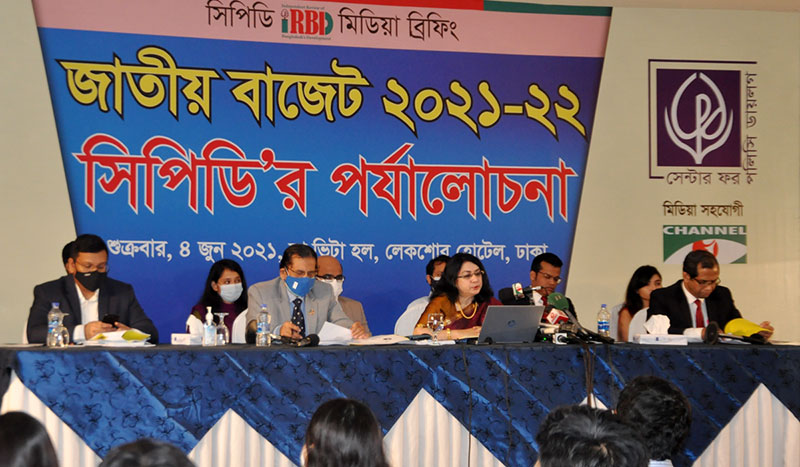
The budget for fiscal year (FY) 2021-22 is the 50th budget of Bangladesh. The national budget for FY22 has been announced at a time when the country is going through the second wave of the pandemic. Since the outbreak of the pandemic in Bangladesh in March 2020, the economy has been facing the most challenging period ever in the history of Bangladesh. The budget for FY22 has been prepared in the context of a number of emerging signs in the economy. Despite challenges the economy has been able to maintain some stability and experienced some positive trends in FY21. However, a number of weaknesses have also been visible during the outgoing fiscal year.
Deficit in revenue mobilisation, weaknesses in government expenditure, low implementation of the Annual Development Programme (ADP), subdued industrial production, gradual pressure on food inflation and low credit flow to the private sector are worrying signs. On the other hand, some turnaround in case of export earnings and import payments, surplus in balance of payments, stable exchange rate and higher forex reserves are reassuring. Given the uncertainty on the duration of the pandemic, the Centre for Policy Dialogue (CPD) feels that the government should prioritise its actions for mitigating not only the immediate health and economic risks but also for smooth recovery from the ongoing shocks by allocating adequate resources and appropriate measures. CPD has examined the context and assumptions informing the budget, fiscal budgetary framework, fiscal space and resource mobilisation targets, resource allocation, deficit financing and budget implementation challenges in view of the objectives.
The analysis was shared at the CPD media briefing on analysis of the proposed National Budget FY2021-22 on Friday, 4 June 2021 at La Vita Hall, Lakeshore Hotel, Dhaka. Following the presentation of the proposed budget by the Hon’ble Finance Minister at the National Parliament on the day before, the analysis was prepared overnight by the CPD team. Dr Fahmida Khatun, Executive Director, CPD made the presentation titled, “An Analysis of the National Budget for FY2021-22”. Professor Mustafizur Rahman, Distinguished Fellow; Dr Khondaker Golam Moazzem, Research Director and Mr Towfiqul Islam Khan, Senior Research Fellow among others, were present at the event. Like every year, the media briefing was broadcasted live by Channel i to reach the mass people.
Dr Fahmida Khatun presented that the budget document refers to management of the COVID situation throughout which was not the case during the first COVID budget (FY21). However, the document does not have much to offer in terms of concrete measures and innovative policies to combat COVID-induced challenges. In the budget speech it is mentioned that health, agriculture and employment generation have been given priority while allocating resources for ADP. However, actual allocation does not reflect this as these promises have not been supported by adequate resources. The budget does not seem to recognise the implementation challenges and hence does not spell out ways to overcome those challenges. Nothing has been mentioned regarding capacity development, stronger monitoring and evaluation, results based framework etc. towards better implementation of budgetary proposals.
She furthered stated that the macroeconomic framework of the budget is far from reality. It takes the revised budget targets, which are unlikely to be achieved, as reference points and assumes that most of the macroeconomic correlates would perform better than the targets set in 8FYP. Though there is a section on reforms in the budget document, it only refers to what have been done so far. It does not spell out what concrete reforms would be undertaken to improve the efficiency in the economy. The unfinished reform agenda in many areas such as tax, customs duty, banking sector, health sector and social sector has constrained the achievement of budgetary targets and its ability to cope with adverse impacts of the pandemic. Given the magnitude of negative impact on various sectors due to COVID-19, CPD had emphasised on the need for medium term strategy for economic recovery. The budget for FY22 has no indication on this. This puts under risk the fulfillment of the promise made in the 50th budget to move towards a resilient future by giving priority to lives and livelihoods.
The presentation at the media briefing was followed by a Q/A sessions.

